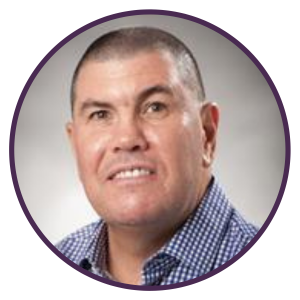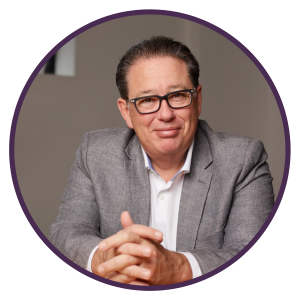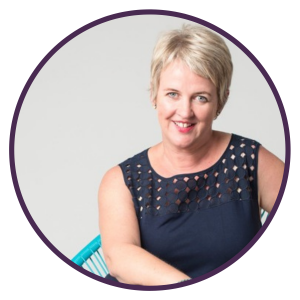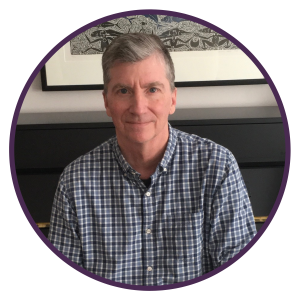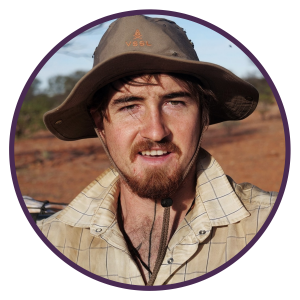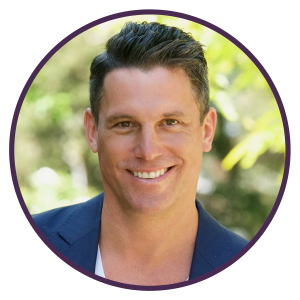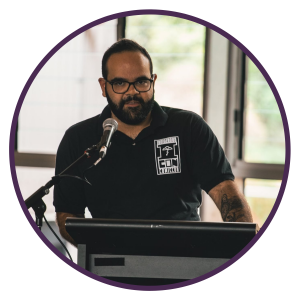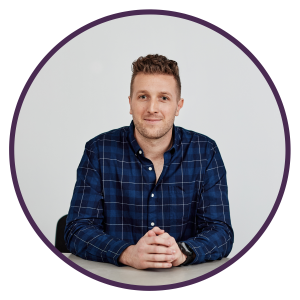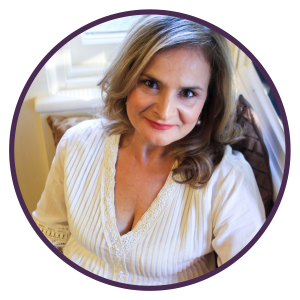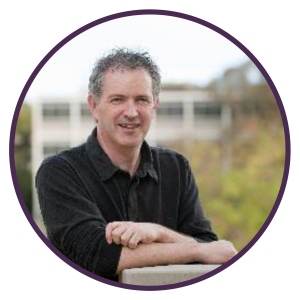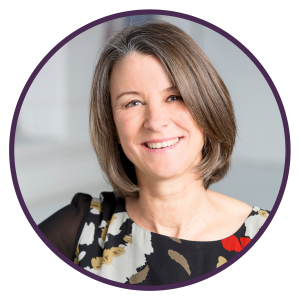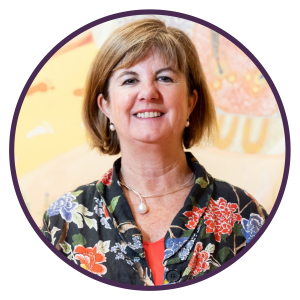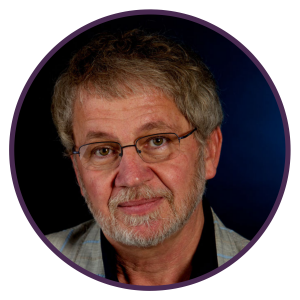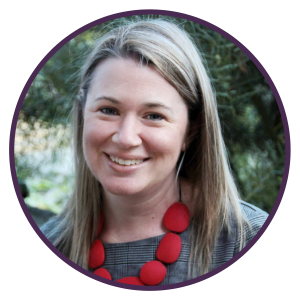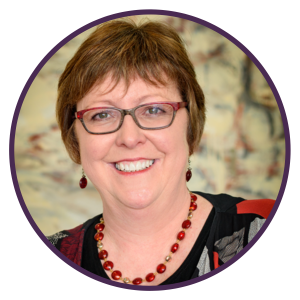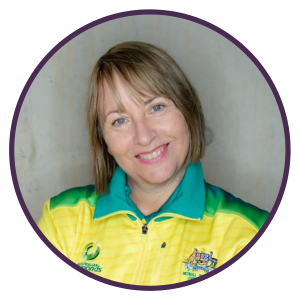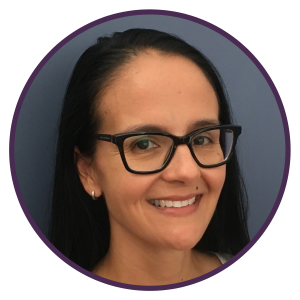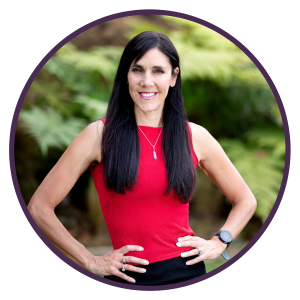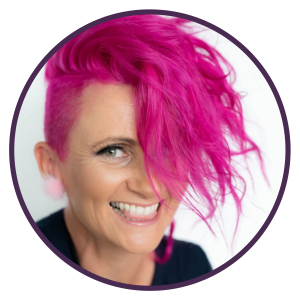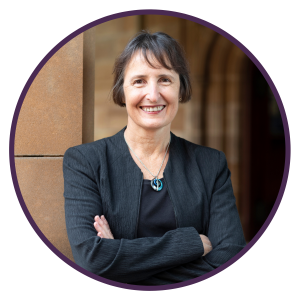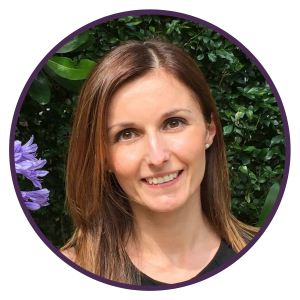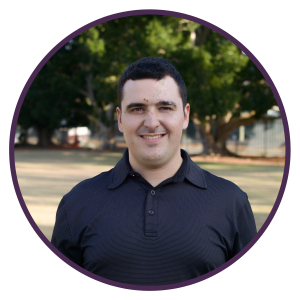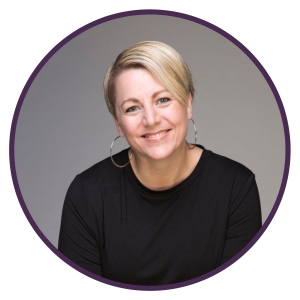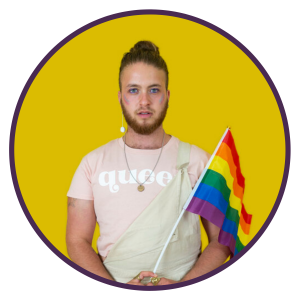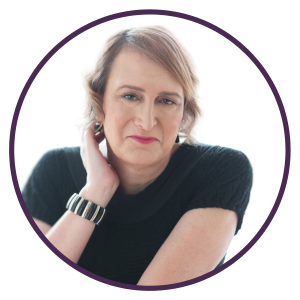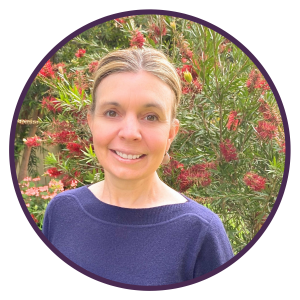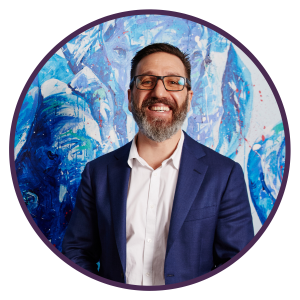Episode 2 - Who is Dr. Dinesh Palipana OAM?
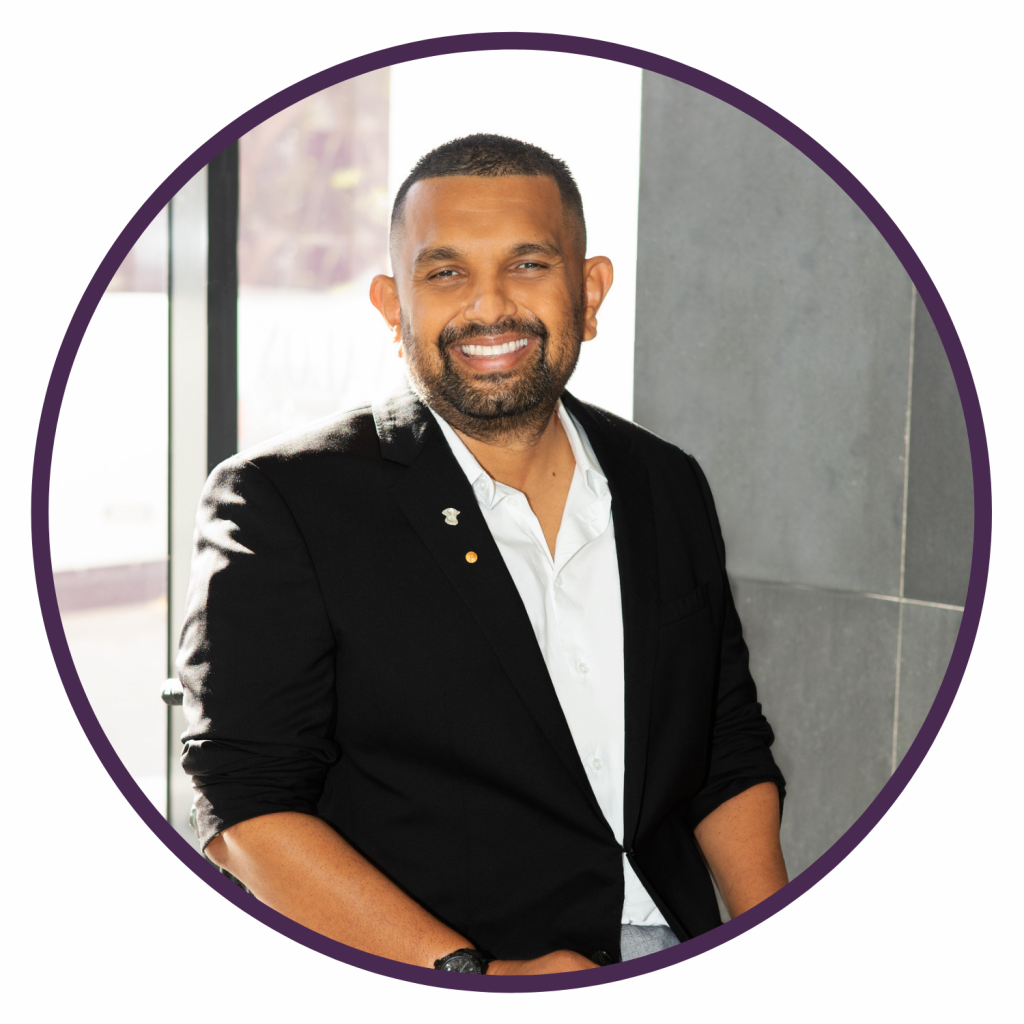
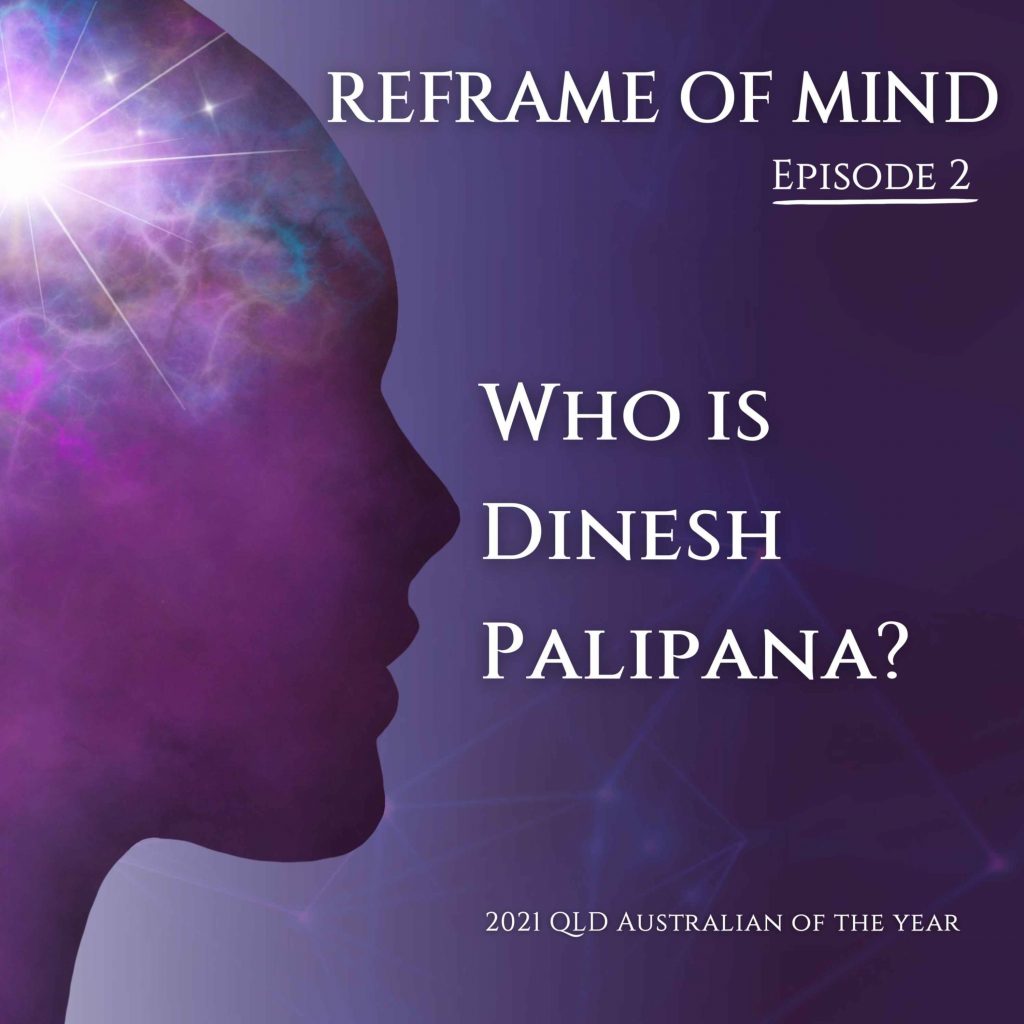
Dinesh Palipana is doctor, lawyer and disability advocate.
He became QLD Australian of the year in 2021, and was the first person with a spinal cord injury to graduate from medicine in Queensland.
Dinesh talks to us about his ‘personal why’ and how it has supported him to thrive in a career he loves despite initial well-meaning but misplaced concerns from people around him at the time of his recovery.
You can connect with Dinesh on his social media directly below:
Jump to: Episode Transcript | Show Notes | Other Guests | Gallery
Follow us now on your podcast app!
Reframe of Mind contains discussion around mental health that may be disturbing to some listeners. If you are concerned about yourself or someone you know, please seek professional individual advice.
Some of the main crisis lines in Australia are listed on our Mental Health Crisis Resources page, including those that operate 24/7 like Beyond Blue and Lifeline.
Gallery
Jump to: Episode Transcript | Show Notes | Other Guests | Top of Page
Show Notes:
Here’s some extra things you might not know about Dinesh, as well as some of the things he told us interested him.
- Dinesh Palipana bio and credentials
- Dinesh Palipana Australia Day Award
- Dinesh Palipana on IncludeAbility
- Dinesh’s donated scrubs
- Perry Cross Spinal Research Foundation
- Health and Knowledge Precinct Gold Coast
- Ego is the Enemy by Ryan Holiday
- The Count of Monte Cristo by Alexandre Dumas
- Graeme Clark Foundation
Jump to: Episode Transcript | Other Guests | Gallery | Top of Page
Transcript
Andy
We acknowledge the Yuggera and Kaurna nations as traditional custodians of the land on which we work live and learn and their continuing connection with the land waters and community.
Louise
All content related to this program is for general informational purposes only and contains stories and discussions around mental health that may be disturbing to some listeners. If you’re concerned about yourself or someone you know, please seek professional individual advice, and support more details are contained in our show notes.
Dinesh Palipana
So, I made a promise to myself that I would come back a better person than I ever was.
Andy
That’s Dinesh Kalpana who I am 2021, Queensland Australian of the Year. And this is Reframe of Mind.
Louise
The podcast that cuts through the platitudes and gets to the core of living authentically challenging our assumptions and improving mental health with the guidance of good science philosophy and learning from other people’s lived experiences
Andy
Were your hosts Andy Le Roy and Louise Poole.
Louise
Dinesh Palipana is a doctor, a lawyer, scientist, and disability advocate, and the first person with a spinal cord injury to graduate from medicine in Queensland
Andy
He had to challenge other people’s perceptions about his capabilities while overcoming his own personal challenges as he recovered from the accident that led to quadriplegia
Louise
Moving towards his personal why is what drove and continues to drive Dinesh’s success. And he started by telling us how he found that.
Dinesh Palipana
When I was going through law school, I suffered from depression and anxiety and panic disorder, and got quite bad. That was the reason I ended up choosing medicine as a career. And so, I finished law school, started med school. And then in medical school, I had a car accident that caused a spinal cord injury and quadriplegia. So, I lost the use of my hands and everything below the chest. And I spent about seven months in hospital and another four years, recovering from the various other physical and social payments, and then came back to medical school in 2015. And now, this is my fifth year as a doctor, and I work in busiest emergency department in Australia, and I am a spinal cord injury researcher, I do a bit of work around disability as well. So, life is good.
Andy
That’s quite the journey Dinesh. I mean, from your beginnings in Sri Lanka, and actually coming to Australia, because of, you know, what was happening around that time as well to come through now to being a practicing doctor in a hospital who has quadriplegia. There are so many things in there to unpack, and I’m sure 40 minutes isn’t gonna do as justice. But I suppose one of the things that stood out to me in you know, reading about your story and what you’ve been through and who you are, one of the things that stood out was the challenge you faced around other people’s perceptions of what you’re capable of, was that something that you didn’t expect, when you were actually trying to deal with everything else that you were dealing with?
Dinesh Palipana
There are many facets to that, actually, because I couldn’t say that before I had the injury, I had no idea what life was like for someone with a disability, right? So, when I used to look at someone using a wheelchair, I just thought, okay, that must be difficult having paralysis, because he’s so you see the physical thing, right. But the problem goes a lot deeper than that. There are problems with lung function, there’s problems with skin, there’s probably gastrointestinal function. And then there’s all these other social things like employment and education, discrimination that goes on. So, I had no idea about the breadth of the challenges that people face. And I think most people don’t really realize that either. So, when I first had the injury, I was just suddenly, suddenly a very steep learning curve about all these things that were an issue. And even within myself, I wasn’t sure what my capabilities would be. And I wasn’t sure what I would be able to do. So even in my own head, I had some doubts about what life would look like and what my capabilities are. So, if I had those doubts, then other people had all these things in their minds as well. So, I you know, a lot of people told me even my close friends said, I think medical school is going to be really hard for you. I mean, this journey is probably something that you don’t want to take, and you should think about doing something a bit easier. So, there were a lot of things from even people close to me that weren’t so enabling a community to make the journey but there’s one thing that he was actually thinking about this last night, and that is in our lives, we have so many people having an opinion about what we should do. There are so many opinions about how we should live our lives, how you should raise your kids or how you should, what job you should do or where you should leave and all these different things. There are different opinions about how you should live your life and be People come in and out of your life and make suggestions. And there are social purposes as well. So, there’s society telling us what to do. But at the end of the day, when you look back at life, when you’re at the end of the road, there’s only one person who you can hold to account. And that’s you. So, I decided not to listen to anyone and pursue my dream, which turned out to be the best thing that I ever did.
Andy
How did you manage to push through to that level of I’m actually going to back myself and actually not listen to these other voices that maybe you for with all the best intentions trying to, you know, in their eyes, maybe protect you from disappointment, but had you listened to their guidance, you wouldn’t be where you are today?
Dinesh Palipana
Yeah, exactly. And, you know, like you said, some people have the best intentions for us. But at the same time, you know, I think we can appreciate when we can think about the input, because all viewpoints are worth considering, because we can learn something from it right. But again, I think it’s really important to remember that one of my friends actually told me recently that this is not a rehearsal, life is happening, and you only get one shot at it. We all see time passing by so quickly, right? Like, oh, my God, how quicks the year gone? And then Oh, my God, how quick have the years gone? And suddenly, you’re at a point where you’re looking back, and you’re, oh, my God, I’ve missed so much of life. So, in all those times, are the people that told you what to do and what to do? Are they there? They’re not, it’s just you. So that that’s really the thought that kept me going. Because I knew that in a few years, all these people, they won’t be around, and they’ll just be living their own lives. So why should I listen to that, really, the only person that I really give a lot of thought to is whatever my mom says, because she’s been such a close part of my life since, well, I’ve known her all my life. So, But I think, I think that that’s one of the most important things. So, you got to carve out your own life, you got to, I think you have to remember that to be happy, truly happy, you can’t get caught up in the cogs and wheels of society. And you can’t get thrown into the passing and fancies of the world. Whatever is fashionable at the moment, you just got to do what makes you happy, and what makes you fulfilled and to pursue your why. If you do that, I think you’ll most of us will end up in a pretty good place. And that’s happiness
Louise
When you talk about that. That feeling that voice inside that even when everyone was saying, you know, this is something that you should not pursue? How loud was that voice in you? Was that a really visceral strong gut reaction that says, this is me and my path? And I’m going to continue with this? Or was it something that you had to kind of cultivate and grow through finding another way to balance and say, well, I’ve got to not listen to that, like it was more of a conscious thing? Or was it just so overwhelming that this is the path? No one’s gonna naysay you out of it?
Dinesh Palipana
No, it was actually a grind. It was a grind. Like, I think these days, it’s a lot more, okay. Because I’ve travelled that path. And so now I can say, no, you know what, like, I understand your prime advice, and I’ve learned something from it. But I feel that this is the right thing to do. And I’m going to do it. But early on in the piece it was really a grind. I was thinking, oh, man, maybe they’re right. Maybe I could, I even had some job offers to keep working as a lawyer and I thought, okay, maybe I should just keep working as a lawyer, maybe it’s the security in that it’s less risky. And I can just, I can find some find a safe way to live. But that’s, I guess that’s one of the other aspects will this is risk, you often have to leave safety to pursue something because we’re all looking for the safe path there. And I think that’s what made it really tricky as well. That’s what added to that grind, particularly with me, right? Because if I, or at least I thought, if I make a misstep, then I’m someone who’s good at spinal cord injury, I wasn’t financially in a great place at all. We were we had zero money, we had nothing behind us. We just had we had debt. So, if I make a misstep, I knew that I would end up in a very difficult perhaps untenable situation, because it’s not like, you know, say, say even became homeless, right? It’s a very different situation to be homeless with spinal cord injury. Not to do it would have ever come to that, I don’t think but you can’t really just go sleep somewhere in a wheelchair. It’s a very, very different thing. All those things are in the back of my mind. So, I knew that if I made a misstep, I would become very dependent on something to live my Live. So, all those things were really playing in my head. And I think we all have that, like, if we’re working, and if we have family, and we have a mortgage and all these things, we probably think about safety first to protect all that. But sometimes you have to take a risk.
Louise
Okay. 100% relate to that, um, I think Andy and I, both can with, you know, we’ve sort of launched this thing that we’re doing, and we don’t have that safety net, a verb, regular job behind us. So, it’s about kind of that putting that passion and going, this is something that I feel like I have to do. And taking that risk, I think a lot of us can kind of relate to that. The rewards are worth it, though, aren’t they?
Dinesh Palipana
Oh, my God, I am so grateful for life. Like, every day, I would have pinched myself at where we are today. Me and my mom, we were a team were a little family that’s got through this hard time. But every day we’ll have pinched ourselves at the different experiences that we get to have things that we get to see and where we’ve got to in life. It’s something that we never imagined, particularly when I was laying in intensive care bed with the wall falling apart around me, I never thought that I’d be sitting here talking to you right now, in this context. It’s crazy.
Andy
Do you feel like that there was an element of calculation in the risk taking with this Dinesh? Or did you really just think, look, I’ve got nothing to lose, I’ve basically got to a point where anything could happen now. And it couldn’t be worse than where I am right now.
Dinesh Palipana
I think this was really an unknown. When I was coming back to medical school, like I knew one guy, who’s a friend of mine now actually, Guillain Barre a syndrome. And he studied in Sydney, but he had a similar level of physical function to me, but before him, there was no one else. They certainly don’t be anywhere in Queensland. So, I didn’t know what would happen. And no one knew what would happen on your way to work. So, he was totally, it was a venture into the unknown. And I wish I could say that I could calculate some of the risks, but I had no idea what to expect. We just dived in hen, you know, mom and I, we didn’t even know how to financially support ourselves through that process. You know, one of the things I realized, though, is we intellectualize some of our decisions to the point of paralysis. Which is ironic thing to say. But, you know, you know, because we sometimes sit there and think about the 1000 different outcomes that could happen. 1000 different risks, doesn’t it? You can see it in some bureaucracies, right. That’s why some things move so slowly. Bureaucracy is it’s about risk management. Yeah. And I think our lives have become like that as well. It’s about risk management. So, we intellectualize decisions so much. So, I’m not saying that we should throw caution to the wind and just do ridiculous things. I’m just saying that. Sometimes we just have to take risks. I remember, talk when I was a medical student, before the accident from Graham Clarke, who is the inventor of the bionic ear. So, he had this dream. In the 1960s. I think it was of creating a bionic ear. The technology wasn’t there then, but he was an EMT surgeon in a successful practice. He had a big family, he was supporting that money, whatever else, they had a string to make the bionic ear. And he set out to do it. He collected money. He said, at one point, organization is just collecting money with tins on the street, he gave up all that job security, and people were calling him the crazy gram clock or something. So, people ridiculed him as well. We had this dream of creating a bond here. And he did. And now today people can hear because of him. And because he took that risk, the world has changed. Imagine that people been here. I think sometimes if you have a dream, in, it’s going to take risk to get there. So, I think like his journey actually really touched me. And I thought about it a lot when I was going through my own. We just got to sometimes just dive in and see what happens.
Andy
Do you think that your experience has made you a better doctor?
Dinesh Palipana
I hope so. I hated being a patient hated it. I couldn’t stand it because you know, you’re in a hospital, right? And you feel so disempowered, you feel out of control, you sometimes don’t know what’s going on. And there’s this paternalistic attitude sometimes where people are telling you what needs to happen, rather than coming to a decision with you. So, I was in hospital for months, like it was seven months and even. Let me tell you two simple things matter. Right. One of the things that I used to do and this this was seven months, right every day for seven months was I used to get up as early as I can to try and get into the bathroom first. Because if you don’t get into the bathroom first, they didn’t clean the bathroom between patients. And so, there was like, the seas everywhere sometime. Its bow and you just go there and you’re, you know, you’re trying to get through a spinal cord injury, you’re trying to come to terms with paralysis, and you’re in this dark old building. And you’re like, geez, this is like, there’s not even a clean bathroom for mechanical, you know. So even like simple things like, plain, clean bathroom is nice. So, I remember that stuff. And, you know, if even if it’s just offering a patient a blanket, or getting them a cup of tea, it’s really, I think it’s those things that matter. So, I tried to remember that. And I tried to remember my experience, and hopefully, that translates to my patients today.
Louise
Did you feel like you were heard as a patient?
Dinesh Palipana
You know, I’ve been in some, literally, I’ve been in some life and death situations. In particularly in the first part, when I was recovering from the injury, especially overseas for some of it, and I wasn’t heard. And because I wasn’t heard these complications, continue to the point where I was medically turned into a train wreck, and I was on the verge of death a couple of times. Whereas if someone just listened, I’ve probably could have avoided those complications early, or at least manage them a bit better. So no, I often didn’t feel like I was,
Louise
how do we change that in I suppose our personal lives, but also in the medical system? Because I often feel like I don’t get heard by doctors.
Andy
Ah, I find, you know, there’s a I think what works. Okay, so one of the fundamental things is, we have become such an inward-looking society, humanity. I don’t know why that has happened. But the part of it is probably due to social media, we look at traditional media, we’re at a point, perhaps it’s through consumerism, or whatever else, we’re aware of the point where our psyches often look at what we can get, right? It’s about what I could buy, or how can I look better? How can I feel better? How can I, you know, it’s all about me, me, me, even wellness is about a lot of the conversations that we have about wellness is looking inwards. So, I don’t think the answer to happiness lies with looking inwards, because inside we are infinite. And so, if we try to feed that infinity, for happiness, it’s, it’s a never-ending thing. You always want more, you always want bigger, you always want something else, you’re the next thing. You want to make another body part look better, or whatever. And that’s a never-ending thing. And the more inward looking we become, I think the more closed off we get, and the more unhappy we get. So, I think the true happiness lies in looking outwards. And it’s about giving, what can we give to the world? What can we make do to change it? What can we do to change someone’s life? What can we do to help someone? If we started doing that? Like, how good is it to do a random act of kindness for someone? Like, how good does that feel? How fulfilling is that, and if we start doing those things, I think that equals happiness. And then if all of us start doing that for each other, then the whole world changes, and the whole world becomes happy. It so particularly if you work as a doctor, I think we go to work, and we look after people. But if we can also do that in the real world, for the people around us, I think we have to take a deep look at ourselves. Happiness really lies in looking outwards and giving. And I think for health professions, it’s more important than ever to take that attitude. Because if you take that attitude to work, and if you’re trying to remind yourself why you’re doing something, then I think the patient care automatically improves a lot of egos around the medical profession in particular, it’s about you know, when we know what’s right for you, and when there’s it’s very hierarchical so there are all these medicines really funny. This is like a little social microcosm within itself. There’s a hierarchy. There’s a social structure, there are certain manners and etiquette that you must follow but Those things are not necessarily conducive to really caring for our patients that gets forgotten within that. So, if we try to remember some of those things, I think care can get better. But these are not things that you can easily teach.
Andy
I just want to come back to your point around, you know, how we perform on social media and so forth as well on how you know, that act of giving really, you know, from my perspective is something that I’ve found is actually, when it’s genuinely done does bring some personal joy. I wonder if you know, there’s a distinction to be made there between doing something out of genuine kindness and what seems to be occurring as to people kind of performing or actually doing something to be seen to be doing the right thing, whether that’s kind of something we need to address, do you think,
Dinesh Palipana
yeah, it’s a fine line, I think, because sometimes you can do something for a personal gain. And that’s probably where things fall apart. If you’re doing something for personal gain, it’s probably not truly giving. So, if you just appearing at something or talking about something, because you might get a reward for it, or something else, that’s probably not the, it’s probably not the right way to go. But it’s just simple stuff. You know, there are people that we can, even if it’s a smiling at someone saying hello, the kind of love and kindness that we can extend to humans, it’s so it’s so good, that sense of community, we saw a bit of that coming out during the pandemic, when people started coming together. But togetherness is so important.
Louise
So, when you say before that, I suppose we’re all like, searching for more and, uh, trying to, you know, keep attaining more, keep doing more, it’s kind of can lead to unhappiness. How does that reconcile with you who I think has done an incredible amount of things and seems to keep reaching for more. I mean, most of us are lucky to have one degree, you’ve gone and got two, and you know it. And now, you know, you work with trying to work like a spinal cord injury. So, I feel like you’re reaching for more as well, and that there’s a power in that too?
Dinesh Palipana
Well, it’s because I have a why about doing those things. I wanted your spinal cord injury because I was on a walk again. So, and I want to only be able to hug my mom again, and I want to stand up again. So that it’s a very deep and personal reason. And I want to see people with spinal cord injuries also have that same opportunity to stand up or have a life, you know, with physical function like that. And then the other things that I do, it’s also been driven by why the law degree helps me helps me navigate disability, it helps me fight for people, it helps me understand some of the structures and help change it. medicines, medicines, amazing, I get to go to work every day get to play a part in people’s journeys. And it’s such a profoundly human activity. And last week, I was at work, for example. And there was a tragic moment with a patient and their family. I don’t think any of us could hold our tears back. But that’s a moment that we shared together. And I think that’s a privilege to be able to do that. So, there’s a lot of all these things have a why. And the other thing is gratitude. Like I said, I grew up in Sri Lanka. I’ve seen some other people in that country. Well, most of the people with spinal cord injuries, they have a pretty difficult life. There’s no NDIS there’s no social support, there’s no equipment, there’s nothing and so many of them pass away. So here I am in this beautiful country in Gold Coast, looking at the ocean right now talking to you using a good wheelchair and what’s the not to be grateful about? So, gratitude really helps me wake up in the morning, Mum, and I often we only sleep sometimes we sleep for the last night we slept about three and a half hours. But it’s a large part of our energy comes from being grateful we often talk to us how lucky are we to be able to do this and do this and do this so then nothing becomes a chore. Gratitude is another part of it and I’m grateful for all these opportunities I have, and I want to make the most of it and I want to make the most of it for the other people that don’t have this opportunity. So those things keep me going as well.
Louise
What some other practices would you say you have in that for being grateful every day? Like are there any are there any things in the toolkit that maybe your mom has to make sure that you’re actively practicing that
Dinesh Palipana
I think you’re gonna you know, any of these things you got to keep Doing it daily. And it’s very easy to forget, or it’s very easy to slip, it’s really easy to sleep, right, we’re often pulled in different directions, because there’s so much stimulus outside us. And if you’re not vigilant, and if you’re not mindful about your thought patterns, you can sleep one way or another. So, it’s about always taking stock in always adjusting the sales to make sure that you’re going in the direction that you want. And sometimes that’s a daily thing. I’ll wake up in the morning, and I’ve written down some of the things that I’m grateful for. So, I think of a few things that I’m thankful for. And one of the other things actually is to really have a good sense of what you are about. I don’t know if you’ve ever come across the novel, The Count of Monte Cristo, but I read it when I was when I initially had the accident. So, these were days when I was laying in bed a lot. And I was looking, looking out into the ocean, I was thinking about what life might be. And I read this book, and the story is about this guy back, you know, a few 100 years ago, he had a great life and a beautiful fiancée, they were due to be married, and people around him betrayed him, he ended up in this island prison, which is isolating, and he lost everything. He made this monk in the prison who helped him escape, and also told him about a treasure that’s hidden, he got the treasure. And then he reinvented himself as the Count of Monte Cristo, this rich, amazing person who then went in, sadly, took revenge on all the people that betrayed him. So wasn’t so much interested in the revenge part, but I was interested in the reinvention part. So, I made a promise to myself that I would come back a better person than I was. So, I read heaps and heaps of books. And if I may slip something else in, there’s a book by Ryan Holiday, called Ego is the Enemy. And in that book, he talks about a lifetime and dead time. So when you when you have, say, an illness, or when you’re in prison, uses the example of Malcolm X, who reinvented himself in prison, you can use that time as dead time where you go, Okay, there’s nothing I can do, I’m just going to limit or you can use that as a lifetime and try to make the most of it. So, I tried to turn it into a lifetime to be as much as I can do as much as I can. So, I spent that time reinventing myself. And one of the things I did was to think and write down actually what I want to stand for as a person. And those were things like loyalty, and perseverance, and giving, and integrity, and all these things. So, I’ve got a list of things that are important to me, and a list of things that are who I am about. So that that’s been an important part as well. And I remind myself that every single day, because, yeah, you need to, you need to know what you stand for. Right? If you have it written down if you have a list of at least five things. When you navigate your day-to-day life, you can stop and check, wait, is this? Is this congruent with my values? And if it’s not, then you need to move on.
Andy
I think that’s really important to outline there the values work and doing things in alignment with the values. I’m interested Dinesh as well, like with this reinvention you’ve been through, how’s that changed your relationship to vulnerability? Oh, big question. Sorry.
Dinesh Palipana
No, no, it’s a good question. It’s a great question, because I used to hate being vulnerable, hated it. If I even had a cold, I wouldn’t let anyone see me with a cup. And I hated being vulnerable. But I don’t think vulnerability is actually a vulnerability in the traditional sense. It’s just about being genuine. So, sharing what you’ve been through and sharing it, honestly, and talking about BB nonSI. That’s just being genuine and nothing. And that’s just being truly yourself. So, if people persecute you for that, I think that’s, that’s probably, you know, that’s probably a reflection of them rather than you. But one ability is not really, I don’t think it’s about that in the traditional sense. It’s about being genuine and talking about who you are and how you got here. Also, when after I had the accent, I was just a naked guy in a bed. Everyone saw me, I had I had 00 dignity, sometimes. It really changed my perspective on what it’s like. You know, one of the things that happened in spinal cord injury is your, your private stop functioning as normal. And so, when I was in the spinal injuries’ unit, one day I was doing therapy with the physio therapist, and she put me up on a standing frame and suddenly the equipment sprung to action without any thought, or intention. And then I said, Oh my god, I’m so sorry. That’s not you. I mean, it would be you. But you know, I just, and this is Oh, no, no, it’s okay. It happens to everyone.
Louise
You mentioned before, when you were at law school that you were, you know, depressed, and you were suffering anxiety, to me depression, often, sometimes it’s very debilitating, like, I mean, it’s one of the worst things that I have experienced. So, it’s interesting that you use the spinal cord time to work on your lifetime. But when you were in law school, you were depressed. And I assume in that case, like you were struggling to kind of function.
Dinesh Palipana
Yeah, so this is a, this is a really good point. And it’s something that I often reflect on and share. And that is, you know, have quadriplegia now, so my body is very different. And it might change the things I do. But depression was far more debilitating than the spinal cord injury ever has been. Because I think when you’re a prisoner of your mind, when you can’t get out of your own head in the stomach, like, I’ve got a friend going through it right now. And it’s so debilitating for. She’s just, she’s struggling at work and whatever else. So, I think when you have your mind, you can be more powerful than ever, and you can do anything. But if you are stuck, and if your mind is not with you, then that’s very debilitating. So, I’ve had the benefit of being able to compare both experiences. And yeah, I can safely say that depression is far more debilitating than spinal cord injury has been
Louise
knowing what you know, now, what would you say to Dinesh, the law student who was suffering depression?
Dinesh Palipana
I just tell him to keep going. Look, I, I’d say that everything will be okay. But one of the things with depression is that it’s incredibly isolating. And I think it’s very hard for people around you to get through to you. And I think it’s very hard to be receptive. And it’s very hard to be open to that as well. I think persistence is the biggest thing. So, if I had to say something to that Dinesh, I’d probably just try and persist and try and be there. Having said that, it’s, it can get frustrating for people around someone with depression, because you’re trying and trying and trying and you feel like, there’s no engagement. But you know, it’s a difficult journey for someone and it’s so isolating. So, I think it’s important to just keep trying,
Louise
what did you do to move out of that, at the time?
Dinesh Palipana
it took me a long time, I had some medical, underlying medical issues as well. So as an Amy guy, but diagnosed with celiac disease at the time, so starting to treat those helps. And I think with depression, it’s important to look for underlying cause first, that’s medically addressing. But the other big one huge one for me was finding my why. Because I didn’t, I didn’t have a why I didn’t, I didn’t have a reason I didn’t have something that was close to my heart. And it was through that, ironically, through the Depression that I found my way, which was medicine and people that love was actually found after going through depression. So, it was a combination of those two things. But I think, you know, I am extremely grateful for that experience, even though it’s one of the hardest things I’ve gone through. It helped me found my why and it helped me find medicine and I’m forever thankful for that
Andy
I’m also interested in what you’re doing with the legal side of things as well, because you are an advocate for doctors with disabilities, and really trying to bring the spotlight on to merit and focusing on what people focus on what people can do, rather than trying to limit them because of what they appear not to be able to do on the surface. Can you tell us a little bit about that work you’re doing?
Dinesh Palipana
Yeah, I mean, the work around doctors and disabilities, it’s really like it’s bigger than that now. So, it’s around people with disabilities. But medicine was an important place to start because I was trying to become a doctor and I had a disability, so we needed to we wanted to change how the medical profession saw disability and how they treated people with disabilities within the profession. It’s so important to have a diversity of people particularly within medicine because I think that was a discussion maybe a few weeks ago. And one of the questions that came up was, what do we need to do to generate new ideas in the medical profession, and I’d like, just need a diverse group of people thinking, thinking. So, it’s important to have that. But the attitudes have been pretty traditional, so to speak, in medicine, and it’s not just disability, but there’s still gender issues. Some of my female colleagues have some issues navigating their careers. And there, although I haven’t experienced it, particularly during COVID, I saw some racial issues as well. So, some of my colleagues of Asian heritage were affected. So, I think it’s important to try and navigate these things. And it’s just we’ve made a lot of headway. So, with disability in particular, the medical education institutions have started changing their approach nationally, both in Australia, New Zealand, and we made headway the United States, UK, India, we’ve played a part in some of those compensations’ employment is starting to change as well, the Australian Medical Association has now put out a position statement encouraging the inclusion of doctors with disabilities in the workplace. So, all those things have been great, and all those things are starting to change. So that also has a flow on effect to other professions as well. So, we’ve had discussions with allied health professionals, paramedics, nursing, and all these other people about that. So, it’s been good. But through that we’ve had input into conversations, like how people with disabilities are treated during COVID-19, because there were a lot of barriers like health care ration, even food access was an issue. So, this has given us a platform to speak to those issues and have some input. And it’s expanded really to advocating for people with disabilities now, which is a real privilege.
Andy
Does it feel like the conversation is now taking a more proactive angle rather than a reactive response?
Dinesh Palipana
Yeah, I think so. It’s starting to, there’s no excuse not to now I think, see, it’s important that society, right, it’s important that people, our community comes together, and talks about things that we believe are right or wrong. And disability has been one of those conversations, gender has been one of those conversations that we’ve seen things like Black Lives Matter, me too, so that for this for society to come together and say, you know what, this is what we believe in. And we want the institutions to change, that that’s a really powerful thing. Because what we forget, is that institutions are accountable to the people, politicians are accountable to the people, governments are accountable to the people. So, if the people come together and talk about an issue in unity, then those institutions are forced to change. And I think that’s important. It’s important that people have these conversations, to mourn that people have these movements, it’s important that we, as grassroots, move our ideals forward, because we can’t always trust institutions to do that.
Louise
Our voices make a difference individually and collectively.
Dinesh Palipana
Yeah, they’re powerful.
Louise
I just wanted to go back to when you were talking about gratitude, Dinesh. And how you and your mum practice that kind of gratitude every day. Is there a way that you practice that with your patients as well? Like, can you kind of talk them into a more gratitude feeling place about their experience? Or is that too much insertion into, you know, trying to make them feel a certain way? But is there is there a way that you can kind of impart that to help them on that journey, too?
Dinesh Palipana
I think everything’s relative; people’s experiences are different, and someone’s experience or certain thing might be so significant to them. Whereas to another person, it might seem very trivial. So, I never use my experience, or I never kind of take that into the interaction. If someone’s going through something, they’re going through something, and it’s probably going to be hard for them. My job really is just to try and help them through that the best way I can. And often that’s, you know, that’s just to be with them, and to make some shared decisions, and to figure out what we can do best together. I think you just got to be empathetic to what someone’s going through and be there for them.
Louise
I love that though. Because I always think, you know, grief is grief, bad is bad. Whatever it is, you’re feeling that about that emotion is the same, even if the actual baseline circumstances different. Yeah.
Dinesh Palipana
And, you know, the funny thing about being a doctor is you see many patients through the day, right? That’s your job, but you always got to step back and remember that while you’re doing a job and seeing all these patients, for most of those patients, It’s, or at least some of them, potentially the most significant event that have ever had in their life, you’ve kind of got to step back. And remember that this, I’ve seen paid patients been diagnosed with cancer, ed or having a heart attack or a stroke. For them, that is probably one of the biggest events that they’ve ever had in their whole life. Help them through that. But we have to keep moving on to the next patient. Because it’s the cogs keep turning, it’s a never-ending machine. We’re going to try and remember that and a part of that is really just empathy and being there with them.
Louise
Is there a moment that stands out to you, perhaps I think in a patient interaction sense that I’ve made the right decision, this is me following my why. And it’s all led me to this place, and it’s all worked out beautifully is there?
Dinesh Palipana
Yeah, I have that all the time. super lucky, I get to do that all the time, every day. But there have been some particular instances where I’ve, you know, that burned into my memory, it’s one of the nice ones was when I came across a patient, it was like 2am, they had a significant disability. And I was the doctor. So, I wandered into their cubicle. And the first thing they said was, I’m so glad that you rolled into my room, because I knew you would understand my situation. So, we have this great man, and we were able to get them through what they needed. So that was so nice. And I think it was probably one of the one of the nicest moments that I’ve had in medicine,
Andy
I also want to sort of expand on this topic of gratitude, and also looking out for what supports us with our goals, because a part of your story is how supportive and also encouraging the university was in bringing you back to complete your study in medicine. So, what kind of balance do you think is important? Or do you think it’s more important to surround yourself with that supportive network? Or did you actually really have to go inside to find that, that strength to follow your passion,
Dinesh Palipana
you know, no person is an island, we’re all we’re all a part of this fabric that makes up humanity. And I think it’s important to surround yourself with people that believe in what you believe. And that will support you through what, what you believe. So sometimes, no matter how crazy the idea is, I think that’s really made a big difference in my life. So last year, late last year, I got the opportunity to give something to the National Museum of Australia, for the Australian of the Year awards. And it was an object that’s of significance to me. So, the object I chose was one of my scrub tops. And I got the people that have played a part in my journey to sign it. And so, there were signatures from everyone from the firemen that kept me out of the car, to the surgeon that operated on me to the educators that took me through medical school to my mom’s my friends. So, I think, for me, that’s really symbolic, because we are a product of the people around us and the people around us leave an imprint on our lives forever. And they made me who I am. So, it’s got Dr. Dinesh Powell upon everything on the scrub top. So, they were responsible for helping to create that person. So, to surround yourself with such people and to acknowledge them and celebrate them is really important. Celebrate the people around you, you have to it’s we are who we are because of them.
Louise
And can we talk about how awesome your mum is what an incredible woman!
Dinesh Palipana
She is the best. So, she’s just an amazing woman. She’s strong, she’s patient, she’s kind. You know, even when I get grumpy, which I do sometimes. She’s just so patient with me. So, she’s incredible. And we, you know, we family, very grateful for her that she gave birth to me, but also everything subsequent to that.
Andy
It’s been a fascinating conversation Dinesh, like, I really, we could talk for hours, because, you know, you’ve been very generous with your time today. And we really appreciate it as well. Very grateful for that. You know, considering your busy schedule from day to day and what in what you do. It’s very humbling to have somebody like yourself, come on and have a chat to us. And congratulations on the Australian of the Year award, I must say as well. How did that make you feel?
Dinesh Palipana
Pretty incredible. It was surreal, actually, you know, still gonna pinch myself every day. Like I said, you know, you just never expect life to take you to these positions. You know, I’m very lucky. I’m very grateful.
Louise
Thank you so much for sharing your story with us today. Dinesh, we really, really appreciate this and we So you and your smiling face we knew we had to talk to this person because you light up the room with you can see the joy and the happiness radiating from you and I truly beautiful.
Dinesh Palipana
No, I appreciate that. Thanks, guys. Really had a great chat. It was good, made me think. Thank you.
Andy
we’ve promised we’re going to cut out the platitudes. So, let’s start with the hard stuff first.
Louise
Dinesh told us that he felt experiencing depression was worse than sustaining a spinal cord injury. In the next episode we’ll start to explore the difference between depression and a bad mood and continue the push against toxic positivity.
Andy
This isn’t about good vibes only. It’s about getting to the heart of who we are and making sustainable change for ourselves.
Louise
Next time on reframe of mind Associate Professor Kimberly Norris, from the School of Psychological Sciences at the University of Tasmania joins us as we talk about depression.
Kimberley Norris
The neuro chemicals in your brain literally are not in balance. When we’re talking about depression for example, we have too little of certain chemicals such as serotonin or too little of chemicals like dopamine, which is if you like you, it’ll feel good chemical. And so, it’s not that people aren’t try, it’s literally that the chemicals in their brain won’t let them think their way out.
Andy
If you’re concerned about yourself or someone you know, please seek professional advice, and support you can contact Beyond Blue on 1300 22 4636 or at beyondblue.org.au
Louise
Or you can contact lifeline on 13 11 14 or lifeline.org.au more resources can be found on our website. We’d like to thank today’s guests for sharing their personal stories and insights. For more information on any of the subject’s guests or references used in this episode. Please see our show notes or reframeofmind.com.au
Andy
Reframe of Mind is a Welcome Change Media Production.
Jump to: Show Notes | Other Guests | Gallery | Top of Page
Check out some of our other guests who appear throughout Reframe of Mind:
Jump to: Episode Transcript | Show Notes | Other Guests | Gallery | Top of Page

